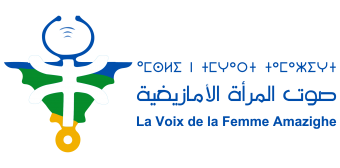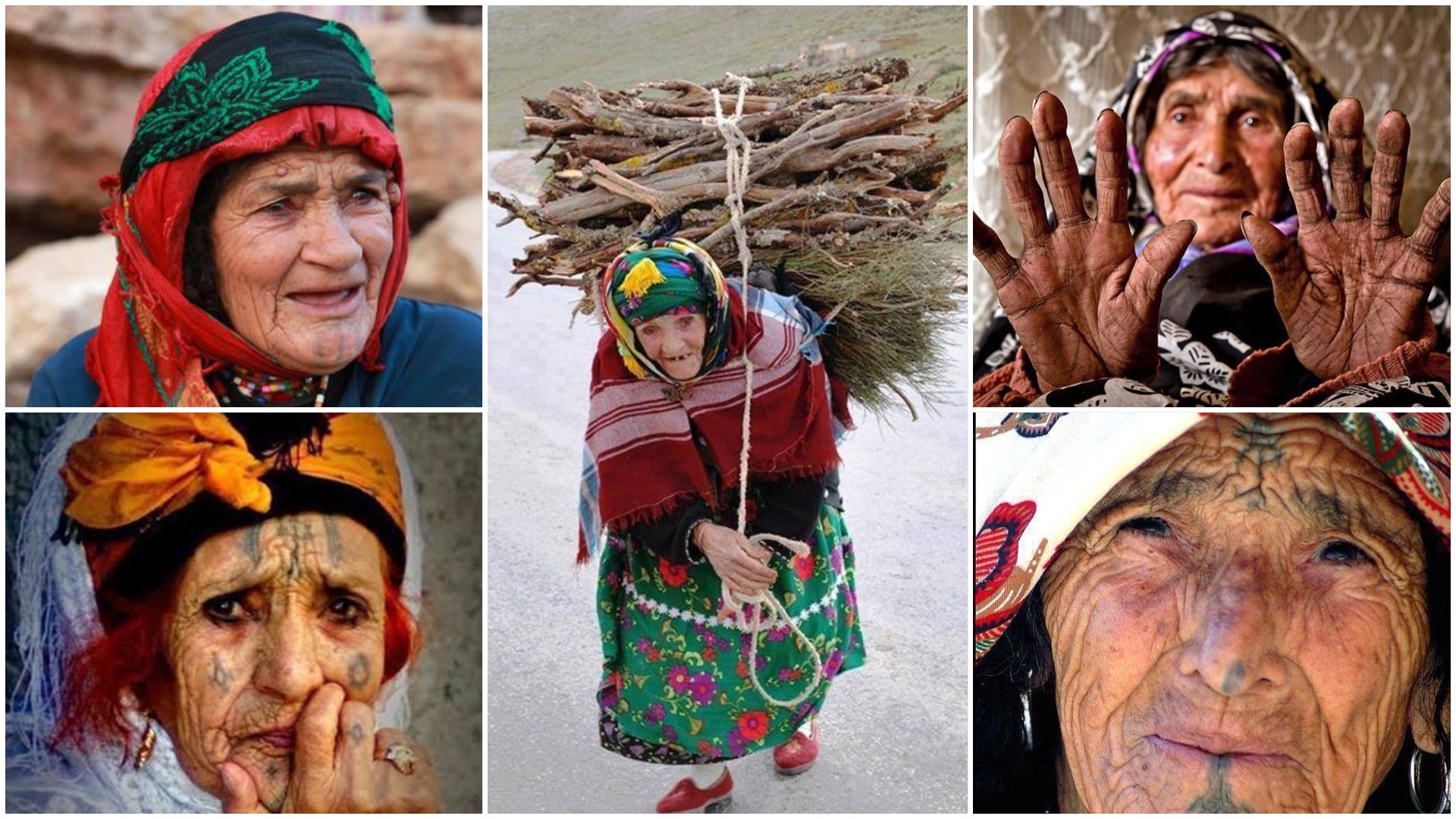The Amazigh Women’s Voice Association has created this study in order to contribute to the public debate concerning the Amazigh women’s right to participate in political life in Morocco and with the intent to gather perspectives of constitutional provisions in relation to equality and equity. This is based on the belief that public action is not possible without studies, research, proposals and recommendations, and advocacy to defend them.
The study, on one hand, focuses on the roles of civil society which, as a whole, play a prominent role in the 2011 Constitution, in order to contribute to the implementation, monitoring and evaluation of public policies. On the other hand, aims to raise awareness, advocacy and diagnosis in order to gain ground in the field of law, participation in political life, women in general and Amazigh women, in particular.
The data collected in this study were based on meetings with the civilian and political activists in the regions targeted by the project. The specific regions targeted were based on direct data collected from Amazigh women in the cities targeted by the project.
I / THE FOUNDATIONS:
The right of women to political participation is one of the most important subjects in political discourse in Morocco, deemed by the attention given to it from various female and male activists, working in both associative and political domains. One can note its presence as an issue in the literature of both the state and parties and civil associations. This is why the proclamation of women’s human rights and the need for their adherence to political life is an essential part of their programs and projects.
Nevertheless, there are significant issues affecting the rights of women, especially the Amazigh. Based on the Amazigh Women’s Voice Association’s results of field monitoring and evaluation of the rate of political participation, it can be deduced that the rate is still far from reaching the desired degree of concordance due to the beliefs and attitudes of activists. This prohibits any move towards the realization of the right to political participation and women’s access to decision-making centers, given the way in which their case is treated. It reduces them to the status of voters and nothing more.
It is standard, according to what has been stated, that there are increasing signs of a status quo in terms of women’s low participation in the governing bodies of political parties and civil organizations. All this leads to the exclusion of their human, linguistic and cultural rights.
II / THE AXES OF THE STUDY:
This study is based on four axes:
- The first axis is devoted to observing the rates of political participation of women and verifying the evolution of this participation at the level of the electorate as well as parties or electoral campaigns in the regions targeted by the project (Tiznit, Agadir, Al Houceima and Nador). The observation also focused on the obstacles and difficulties that prevented this participation.
- The second axis has been devoted to the international and constitutional reference framework for political participation, recalling the different operational procedures for supporting the political participation of women, as they appear in some international human rights treaties and the Constitution. This, while presenting the legislative provisions relative to this participation stipulated by different laws related to it (parties, elections, communes).
- Regarding the third axis, it was devoted to the presentation of proposals and suggestions that could corroborate political participation at the level of all laws, be they the organizational laws of political parties, elections, or those relating to communal elections, regions, prefectures and municipalities.
- Finally, the fourth axis is devoted to the recommendations that the Association proposes in order to corroborate the political participation of women at the legislative and institutional level of parties and municipalities, in education and training programs, and in information and communication. It is also devoted to empowering the study to become a reference that guides the action of civil organizations, official institutions and associations. It has been followed by an appendix which contains the legislative articles as they appear in the texts, at the present time, while contrasting alternative formulations containing the required amendments.
III / FUNDAMENTAL CONCLUSIONS:
The thematic study, which is the subject of this summary, has led to the conclusion that if the representation of women in elections and the support of their presence in local and national elected municipalities is logically justified by the management of local affairs by the municipalities, it is likewise a management of the interests of a population that is characterized by the diversity of gender, age, socio-linguistic, cultural and professional groups. Contrary to this, these territorial units do not, in most cases, provide the means necessary for the participation of half of the electoral mass of its population in the electoral programs and development projects.
In the same context, the study found near-unanimity among women who participated in the various stages of the study programs, that the rise of women in decision-making centers acts as a precursor to the integration of women’s demands into development projects and thus enabling half the population to participate in political life can only improve a community while contributing to the empowerment and moralization of political action. The women also noted the deepening of the conviction that the presence of women in political life would provide important insights into what women, through their skills and practical experience, could contribute to it.
-
THE RECOMMENDATIONS :
1- At the legislative level
- Legislative provisions constitute a premise for corroborating the political participation of women, in addition to the proposals for legislative amendments to the texts relating to the electoral process and political parties. It is necessary to put into practice the principle of adequacy with what will be decreed by the organizational law on the officialization of the Amazigh language since this law constitutes the way of realizing the Constitution by satisfying the aspirations of the Amazigh activists and realizing the hopes that they placed in this law. This can only happen if the Amazigh women feel comfortable enough to voice their perspectives and feel like it will be heard.
2- At the level of civil society
- The creation of local and regional networks of Amazigh municipal councillors, as spaces for the exchange of ideas and experiences, is for the development of their political skills in the management of local affairs and for strengthening the mechanisms of collaboration, with the intention of combining their efforts and exerting their pressure more effectively.
- The development of the mechanisms underpinning joint actions with political organizations (whether a party or party-affiliated organizations) and related to the political participation of women as a necessity.
- Train leaders to corroborate the presence of Amazigh women in the various deliberative and decision-making bodies of the parties at all levels: national, regional and local.
- Monitoring and evaluating the actions of the parties with regard to their propensity to respect the political participation of women in their political bodies.
- Develop legislative proposals related to the political participation of Amazigh women in political parties and advocate with the parties, elected institutions and ministries.
- The development of guides and publications in the Amazigh language that show women’s insight into the role played in political parties and explain national and international mechanisms related to women’s political participation.
- Support and strengthen the skills and competencies of gender equality committees, making them committees of a decision-making nature.
- To take an interest in the official and private media, as well as in the alternative and associative media in the Amazigh language and their awareness of the egalitarian causes and the role that these media can play and in the fulfilment of these equalities and in the dissemination of these values at the company level.
- The creation of mechanisms to assess quantitatively the share of financial resources available to local and regional authorities reserved for women.
3- At the party level
- The need for parties to assume their role in improving the supervision of citizens, taking parity into account in their programs and actions in order to achieve the constitutional goal of equality.
- The operationalization of the Amazigh language in the programs as well as in the public discourse of the political parties, in their daily activities, and in the electoral campaigns.
- The need to overcome (banish) any practice of marginalization aimed at Amazigh women and their participation in political decisions or in the constitution of party councils.
- The strengthening of the presence of the Amazigh woman in the public realm (especially at the local level), through the amendment of the internal rules of the political parties and the laws relating to meetings, in order to enable them to participate actively and to have a strong representation in these realms.
-
At the media level
- To highlight the many roles of Amazigh women, far from the archetypal image that is given to them.
- Ensure the presence of Amazigh language in public speeches.
- Work for the development and planning of programs that address the participation of Amazigh women in public life.
- Support the alternative media, which starts from the people and is destined to them, through formations, the direct support and the one of a law able to contribute to its improvement.
5- At the level of territorial communes
- Based on Amazigh, as a language, as culture and civilization, in the elaboration of the programs and action plans of the territorial communes.
- Take into account territorial and geographical data as well as local specificities, as means of strengthening the participation of Amazigh women in local public policies.
- Ensure the effective participation of Amazigh women in the development of the action programs of the territorial communes (as chairpersons of committees), because women are empowered to manage with the aim of contributing to change, as they are able to define needs and priorities, in accordance with their expectations.
- Allocate part of the budgets of territorial communes and develop plans and projects that take social gender into account.
- To put in place mechanisms to control the extent to which social gender is taken into account in municipal management.
6- At the level of education and teaching
- Compulsory education of the Amazigh language, culture and civilization at all levels of education.
- The revival of the Amazigh values of equality and equity through the development of Amazigh women leaders in the school curriculum.
- The rehabilitation of the Amazigh culture and identity heritage, as well as its compulsory integration into the education system, which is supposed to be a new generation with the values of gender equality.
7- At the level of the Ministry of the Interior
- Ensure rigorous enforcement of all laws.
- Activate mechanisms for monitoring and control of the electoral process, in all its stages.
- Review all reports and minutes related to elections to ensure compliance with applicable legislation.
- Supporting women during election campaigns: not just financial incentives for parties that nominate candidates in the first round of elections, but other forms of support for women in election campaigns and councils.
- To condition the annual public funding of political parties according to the degree of effective participation of women in the decision-making process within the party.

